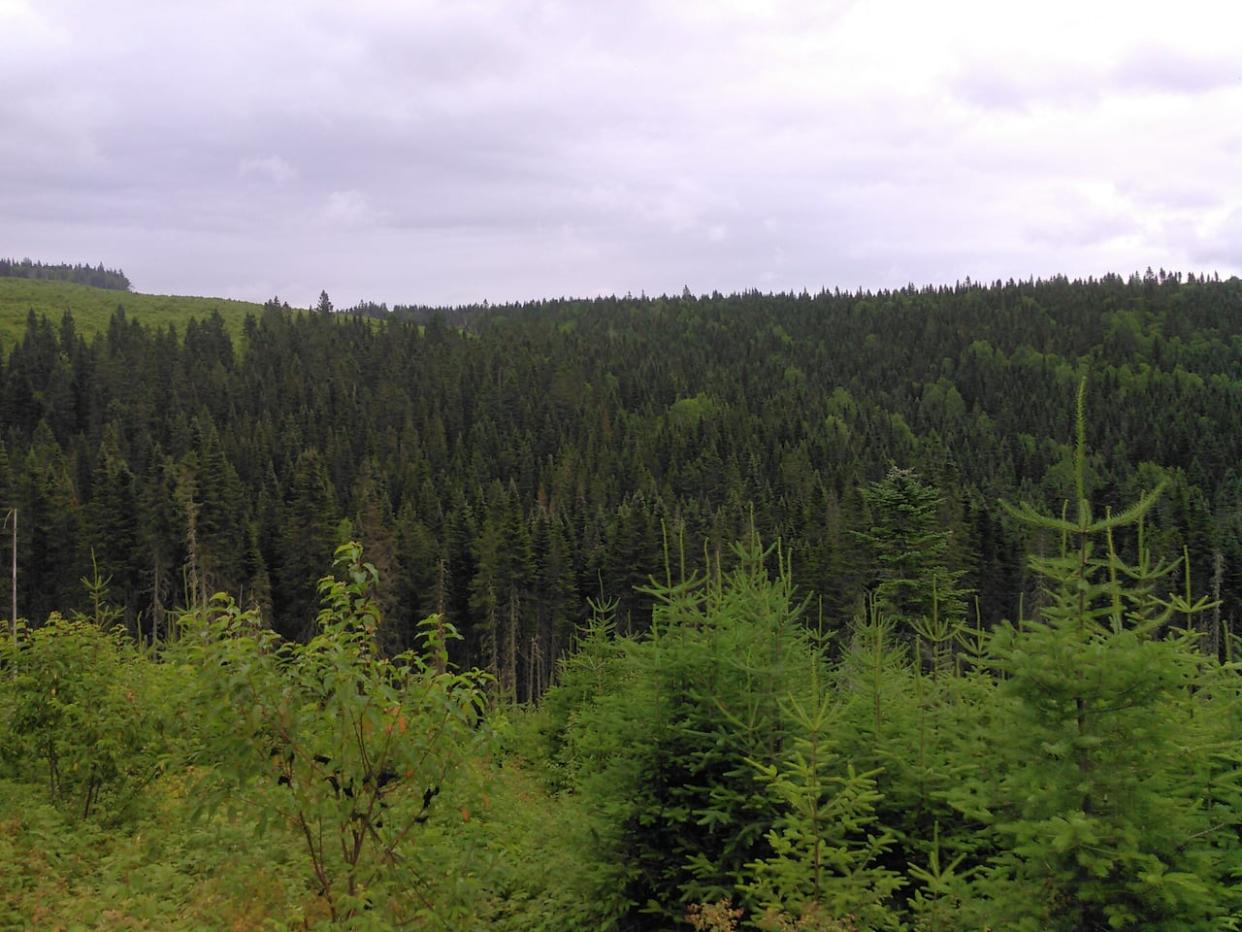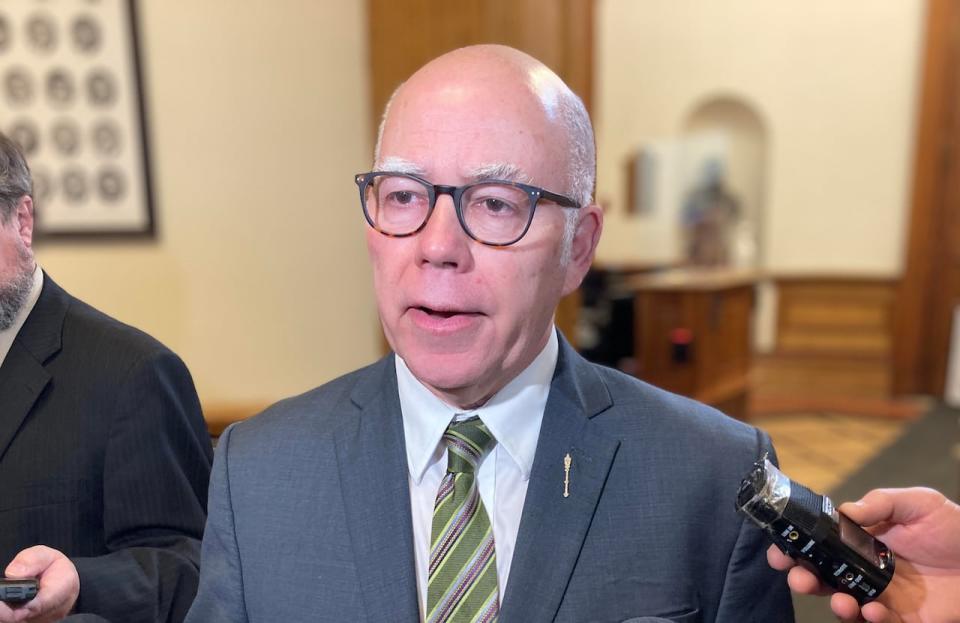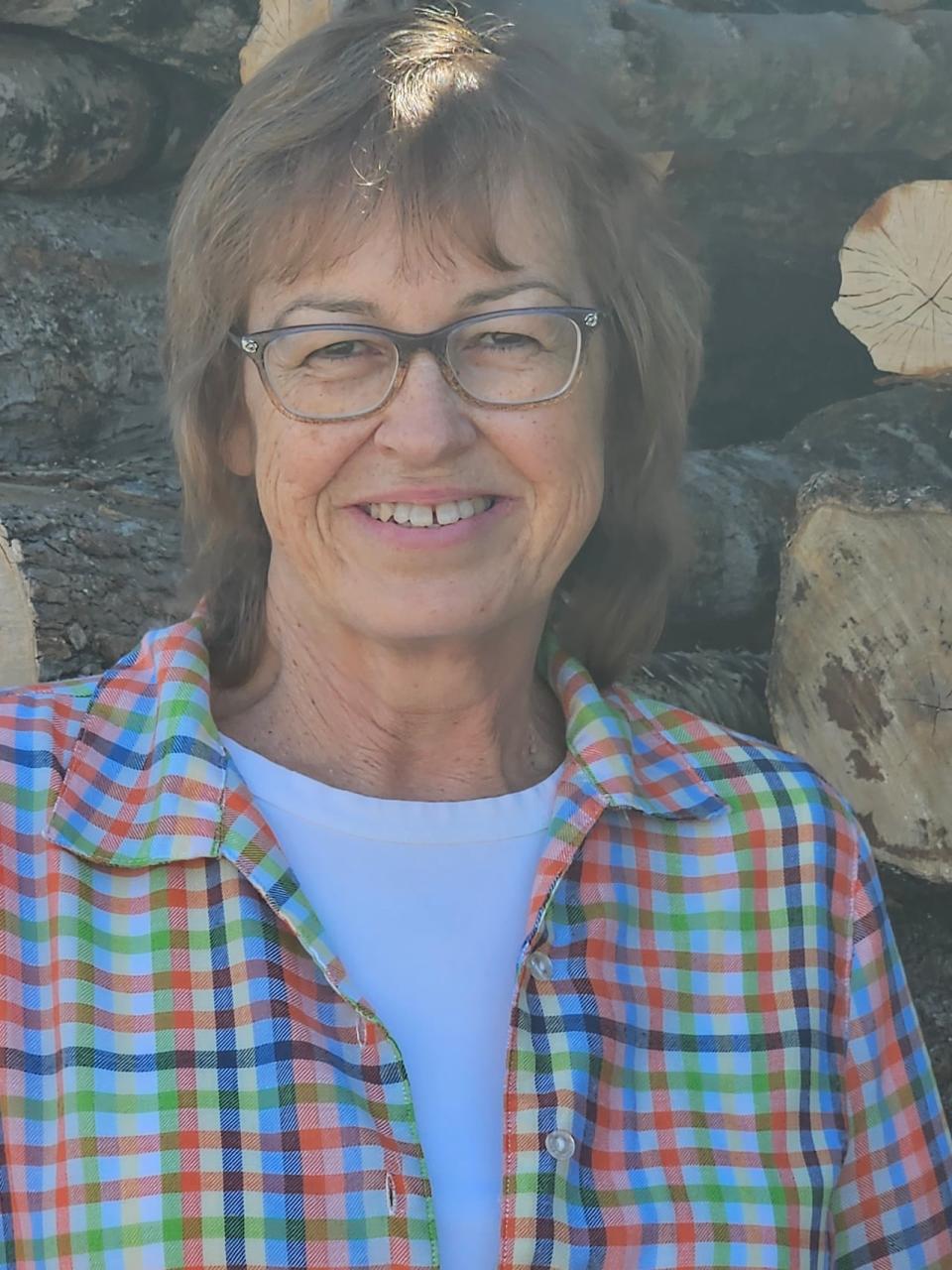Missing report on the state of N.B. forests 'appalling,' says Green Party leader

In January, the Department of Natural Resources and Energy Development said it would release an updated report on the state of New Brunswick's forests on April 1. That deadline came and went — with no report in sight.
Green Party Leader David Coon said he's been waiting for an update on the report since it was first promised seven years ago. He said since then, the department has continuously missed its own deadlines.
"The government has a responsibility to be transparent around its stewardship of half of our land mass. And they're not at all," said Coon. "That's appalling and unacceptable."
The report details forestry activity updates, ground sampling, aerial photography and photo interpretations of New Brunswick's forests.

Green Party Leader David Coon said the Department of Natural Resources continues to miss its deadline for the state of the province's forests report. (Jacques Poitras/CBC)
"The state of the forests in New Brunswick has deteriorated considerably since 2015 when the last state of the forests report was released," said Coon.
"We know that there's been a massive reduction in habitat, a massive reduction in wildlife populations, birds in particular, as a result of the loss of that habitat."
The department did not respond to requests for an interview, but they responded via email: "We are committed to providing an update on the state of New Brunswick's forest[s]. We look forward to sharing more information with New Brunswickers in the near future."
"I don't expect to see it anytime soon," said Coon.
Calls for other forest-related reports
Amanda Page, ecological forestry researcher for the Conservation Council of New Brunswick, said this isn't the first time the government has missed a deadline on forest-related updates and reports.
In May, conservation groups — including the Canadian Parks and Wilderness Society, Nature Trust of New Brunswick, Conservation Council of New Brunswick, and Nature NB — called on the provincial government to provide a "transparent and integrated forest management strategy rooted in biodiversity, conservation, Indigenous co-stewardship, and ecological forestry practices," according to Nature NB's website.
Page said the forest management strategy was supposed to be released in July, but it never came. She added that the Department of Natural Resources said it was working on a forest carbon inventory, but it too has not been released.
The Department of Natural Resources and Energy Development did not provide a response for information pertaining to these missing reports.
"Year after year, we're missing these deadlines," said Page. "The forests report is just the cherry on top of the cake of deadlines missed by our administration."
'Missing a lot of information'
The Carleton Victoria Wood Producers Association is a non-profit organization in Florenceville dedicated to helping private woodlot owners. General manager Linda Bell said that without an updated report, "we are missing a lot of information. We know it's inaccurate."
Bell added, "We know that many woodlots have been harvested, and we have no records of the wood being harvested. So the wood's gone, but there's been no record remitted to government in our production."
CBC New Brunswick requested interviews from larger logging companies, including J.D. Irving and Acadian Timber, but no one was made available for an interview.

Linda Bell, general manager of the Carleton Victoria Wood Producers Association in Florenceville, said the government's information is outdated. (Submitted by Linda Bell)
In 2015, an auditor general's report reviewing the Department of Natural Resources stated that during the 2009 to 2014 audit period, "the Department fell short in fulfilling some of its related management and oversight responsibilities. This includes not updating the forest management plans and agreements; failing to enforce compliance with treatment standards and not completing licensee performance evaluations, in addition to not keeping the public informed on the state of the Province's forests and the impact of the Department's silviculture activities."
Both Page and Coon said transparency about New Brunswick's forests hasn't been a priority for the government.
New Brunswickers care about forests, poll shows
But public opinion polling shows New Brunswick residents care deeply about the state of the province's forests.
In 2022, Oraclepoll Research, an analytics and public polling company, surveyed 300 New Brunswickers on behalf of the Atlantic Salmon Federation, Canadian Parks and Wilderness Society–NB Chapter, and the Conservation Council of New Brunswick.
The report found that 70 per cent of respondents said it was of "total importance" to protect multi-species forest landscapes, and 82 per cent said the province should consider limiting the size of clearcuts.
According to the report, the majority of New Brunswickers also disapprove of industrial forest management in the province, with 47 per cent of respondents saying they hold an unfavourable opinion. In comparison, 34 per cent responded favourably, and 19 per cent said they were unsure.
People in New Brunswick "very much value their forests," said Page. "We need to be able to trust the government."
She added, "I feel that it's very uncertain what the next 10 years or 20 years is going to look like in terms of how much income and value we can get out of forests."


